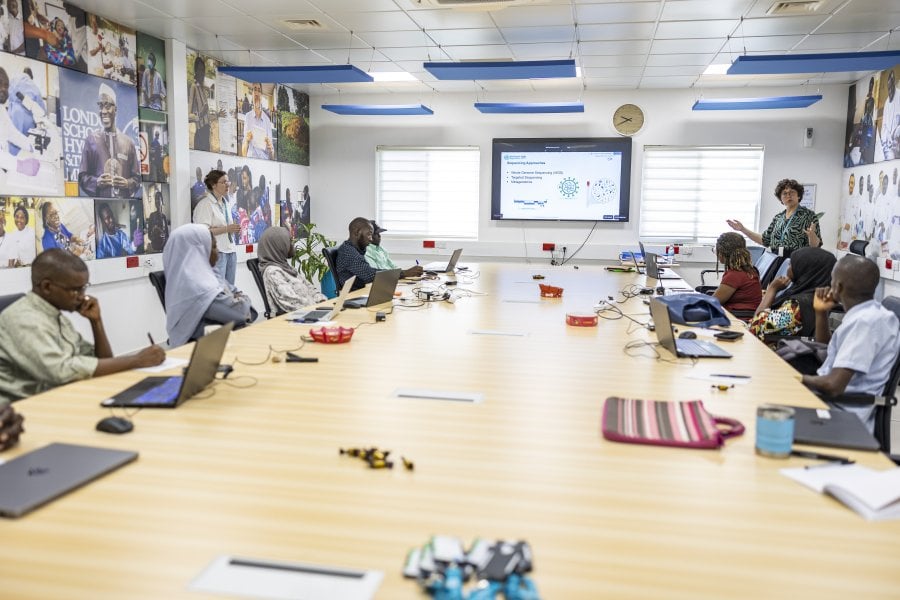
Participant undergoing training at MRCG
The training organised by the Robert Koch Institute (RKI), the National Public Health Institute in Germany, as part of the project "A Partnership to Strengthen Integrated Genomic Surveillance through Greater Capacities in National Public Health Institutes" (IGS project).
The project is a two-year initiative funded and supported by the WHO Hub for Pandemic and Epidemic Intelligence, based in Berlin, aimed to build national capacity for integrated genomic surveillance.
Bringing together 10 health professionals from The Gambia, including participants from the Directorate of Public Health Service, Edward Francis Small Teaching Hospital, and the National Public Health Laboratories, the training for scientists and clinicians with expertise in Next Generation Sequencing, genomics, and public health, provided participants with the skills to navigate Linux systems.
Covering topics such as creating, modifying, and viewing files on the command line, running small scripts for automations, installing, and managing bioinformatics tools and efficient data management, the training developed participants’ understanding of eessential bash commands that will empower them to navigate Linux systems. These skills are expected to better position them to interpret crucial scientific data and support them in advancing their bioinformatics skills in the future.
The collaboration between the RKI and MRCG at LSHTM plays a crucial role in building foundational bioinformatics skills in the region. This training serves as a starting point for developing the expertise needed for genomic data analysis. By introducing these essential skills, it lays the groundwork for enhanced genomic surveillance capabilities, which are vital for effective disease monitoring and response in the region.
Dr Buba Manjang, Director of Public Health Service at the Ministry of Health emphasised the significance of the training.
“This reflects the strong collaboration that has long existed between MRCG and the Ministry of Health. The Ministry’s staff will now benefit from this knowledge transfer, enhancing their skills for improved service delivery. We are also appreciative of the support from the Robert Koch Institute."
“The skills gained from this training will enhance our staff’s ability to manage data effectively. This will ensure that the Ministry has the necessary information for informed decision-making and allow us to provide timely updates as needed," he added.
Abdul Sesay, Head of the Genomics Strategic Core Platform at MRCG at LSHTM, said: “We are already collaborating with RKI on a grant and have established a good relationship.”
“Analysing genomics data generated in The Gambia through the public health systems by public health officials is important for building capacity in the country. The dry lab aspects of the training provided by RKI will be useful to train individuals from the public health sectors, with skills required for them to perform the analysis of molecular/genomics datasets,” he added.
The training led by RKI and supported by MRCG at LSHTM is part of larger effort to strengthen the capacities of health professionals in the subregion, underscoring our commitment to advancing public health through improved bioinformatics skills.
If you enjoyed this article and would like to build a career in global health, we offer a range of MSc programmes covering health and data, infectious and tropical diseases, population health, and public health and policy.
Available on campus or online, including flexible study that works around your work and home life, be part of a global community at the UK's no.1 public health university.
